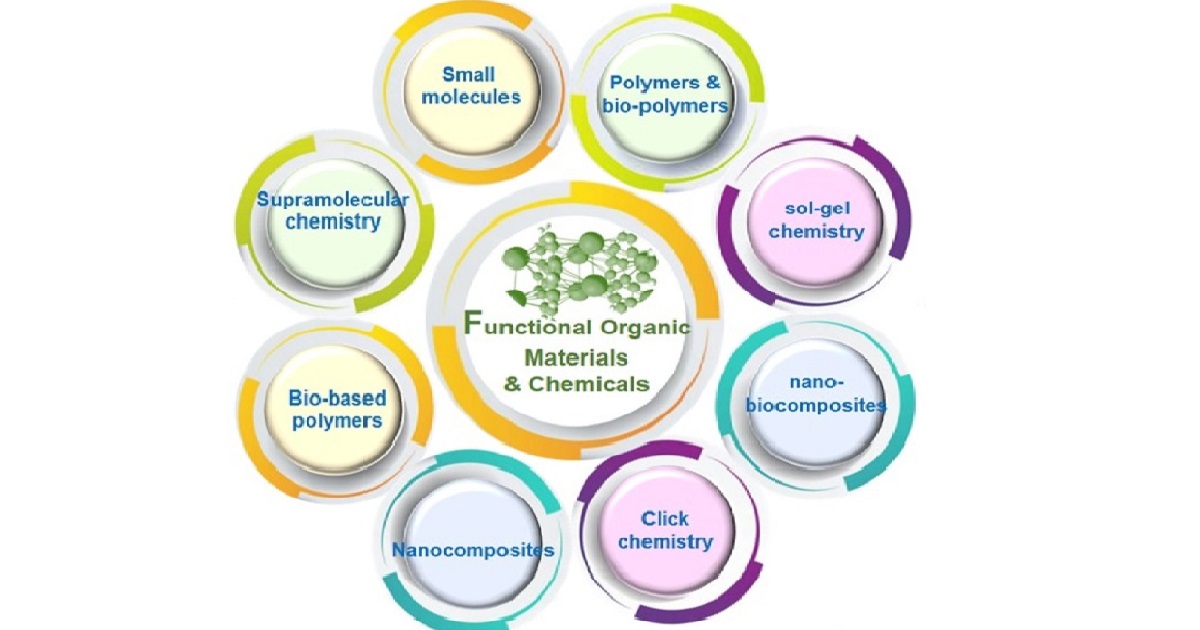- 2.8Impact Factor
- 5.5CiteScore
- 16 daysTime to First Decision
Synthesis of Functional Organic Materials and Chemicals
This special issue belongs to the section “Chemical Processes and Systems“.
Special Issue Information
Dear Colleagues,
Functional groups and modifications allow for precise control of the properties of organic materials and chemicals. Introducing specific functionalities enables the development of materials/biomaterials with desired characteristics for specific applications. They serve as building blocks for synthesizing pharmaceuticals, dyes, catalysts, polymers, biopolymers, bio-based polymers, electronic components, sensors, membranes, coatings, and many other functional products. The ability to customize the properties of these materials makes them versatile and adaptable to diverse technological needs.
This Special Issue on the “Synthesis of Functional Organic Materials and Chemicals” pursues high-quality research concentrating on the latest and novel advancements in small molecule synthesis, polymer and bio-polymers synthesis, bio-based polymers, supramolecular chemistry, nanocomposites, nano-biocomposites, sol-gel chemistry, click chemistry, and development/synthesis of all kinds modifications that allow for precise control of the properties of organic materials and chemicals.
The topics within the scope of the Issue are mainly the following
but are not limited to these:
- Synthesis and construction of simple/complex organic molecules through various reactions, including but not limited to functional group transformations, carbon‒carbon bond formation, protecting group strategies, and multi-step synthesis.
- Polymer synthesis with tailored properties such as step-growth polymerization, chain-growth polymerization, crosslinking, etc.
- Nanomaterials such as nanoparticles, nanowires, and nanotubes can be synthesized and subsequently functionalized to impart desired properties.
- Functional materials can also be assembled through supramolecular interactions.
- Surface modification techniques such as ligand exchange, surface grafting, encapsulation, etc.
- Sol‒gel chemistry for the preparation of various functional materials such as ceramics, glasses, and hybrid organic‒inorganic materials.
- New industrial biopolymer/bio-based polymer products.
Dr. Ajmir Khan
Dr. Mohamed A. Abdelwahab
Guest Editors
Manuscript Submission Information
Manuscripts should be submitted online at www.mdpi.com by registering and logging in to this website. Once you are registered, click here to go to the submission form. Manuscripts can be submitted until the deadline. All submissions that pass pre-check are peer-reviewed. Accepted papers will be published continuously in the journal (as soon as accepted) and will be listed together on the special issue website. Research articles, review articles as well as short communications are invited. For planned papers, a title and short abstract (about 250 words) can be sent to the Editorial Office for assessment.
Submitted manuscripts should not have been published previously, nor be under consideration for publication elsewhere (except conference proceedings papers). All manuscripts are thoroughly refereed through a single-blind peer-review process. A guide for authors and other relevant information for submission of manuscripts is available on the Instructions for Authors page. Processes is an international peer-reviewed open access semimonthly journal published by MDPI.
Please visit the Instructions for Authors page before submitting a manuscript. The Article Processing Charge (APC) for publication in this open access journal is 2400 CHF (Swiss Francs). Submitted papers should be well formatted and use good English. Authors may use MDPI's English editing service prior to publication or during author revisions.
Keywords
- organic materials and chemicals
- polymers
- bio-based polymers
- nanocomposites
- nano-biocomposites
- sol‒gel chemistry
- surface modification techniques

Benefits of Publishing in a Special Issue
- Ease of navigation: Grouping papers by topic helps scholars navigate broad scope journals more efficiently.
- Greater discoverability: Special Issues support the reach and impact of scientific research. Articles in Special Issues are more discoverable and cited more frequently.
- Expansion of research network: Special Issues facilitate connections among authors, fostering scientific collaborations.
- External promotion: Articles in Special Issues are often promoted through the journal's social media, increasing their visibility.
- e-Book format: Special Issues with more than 10 articles can be published as dedicated e-books, ensuring wide and rapid dissemination.

